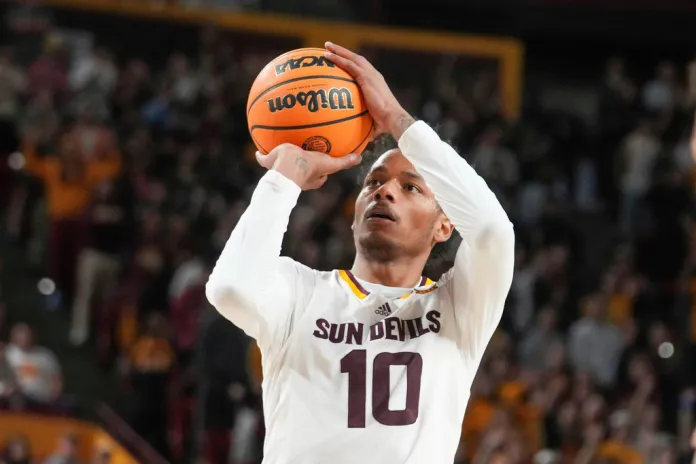The NCAA banned six college basketball players from competition after the association found they participated in betting-related game manipulation or provided information to bettors.
The violations come as conversations continue surrounding some athletes’ active participation in betting, especially after two former NBA players, including Hall of Famer Chauncey Billups, were found to be rigging poker games.
After the conclusion of the investigation, the NCAA revealed that the players are Cedquavious Hunter, Dyquavian Short, and Jamond Vincent of the University of New Orleans; Donovan Sanders and Alvin Stredic of Mississippi Valley State University; and Chatton “BJ” Freeman of Arizona State University.
The NCAA has revoked the eligibility of each athlete, and they are no longer enrolled at their schools. In each case, athletes violated betting rules and refused to cooperate with the investigations.
“While the cases at each school are not directly related, the violations for each case involved betting-related game manipulation and/or student-athletes providing information to known bettors,” the NCAA said in a statement. “Additionally, all three cases involved lack of cooperation by student-athletes, who knowingly provided false or misleading information to investigators.”
“As a result of the sports betting violations, the student-athletes all violated ethical conduct rules, triggering permanent ineligibility,” the NCAA said.
None of the schools are being punished as the NCAA determined that coaches and most other players were unaware of the schemes. All of the players competed for Division I basketball schools.

Freeman, one of the most famous players, played for ASU. The school competes in the Big 12 Conference and went to the NCAA Tournament as recently as 2023. Freeman was a major contributor to the Sun Devils in the 2024-2025 season, averaging about 14 points, four rebounds, and three assists per game.
He was kicked off the team in February, having just one season of eligibility remaining. The NCAA’s report said he provided information to bettors on at least six different occasions and “knowingly provided false or misleading information” about the incident.
“The violations involving Chatton ‘BJ’ Freeman, then competing at Arizona State, were uncovered when the enforcement staff reviewed text messages for a separate infractions case involving Mykell Robinson, a then-student-athlete at Fresno State. Records on Robinson’s phone indicated that on four separate occasions between November and December 2024, Freeman knowingly provided information to Robinson, who was betting on Freeman through daily fantasy sports accounts,” the report said.
“Freeman also knowingly provided information on at least two occasions to his then-girlfriend, who was also betting on Freeman. When interviewed by enforcement staff, Freeman knowingly provided false or misleading information when he denied sharing information with Robinson and his then-girlfriend. He also denied having a daily fantasy sports account — which was under his name and email address — into which he had made deposits while competing at a previous school,” it concluded.
The other two cases involving New Orleans and MVSU involved athletes “throwing” games. In one instance, Vincent texted bettors that he and his teammates planned to “throw the game” and discussed receiving money.
EASY SPORTS BETTING HURT SOCIETY. IT’S ONLY GOING TO GET WORSE
The NCAA said its committee on infractions does not assess additional penalties, and the “starting point for student-athletes who bet on their own games or share information for betting purposes is a permanent loss of eligibility.”
The Department of Justice told the Washington Examiner that it had “no comment” on the college basketball players. The Washington Examiner also contacted the FBI, but it did not respond.
